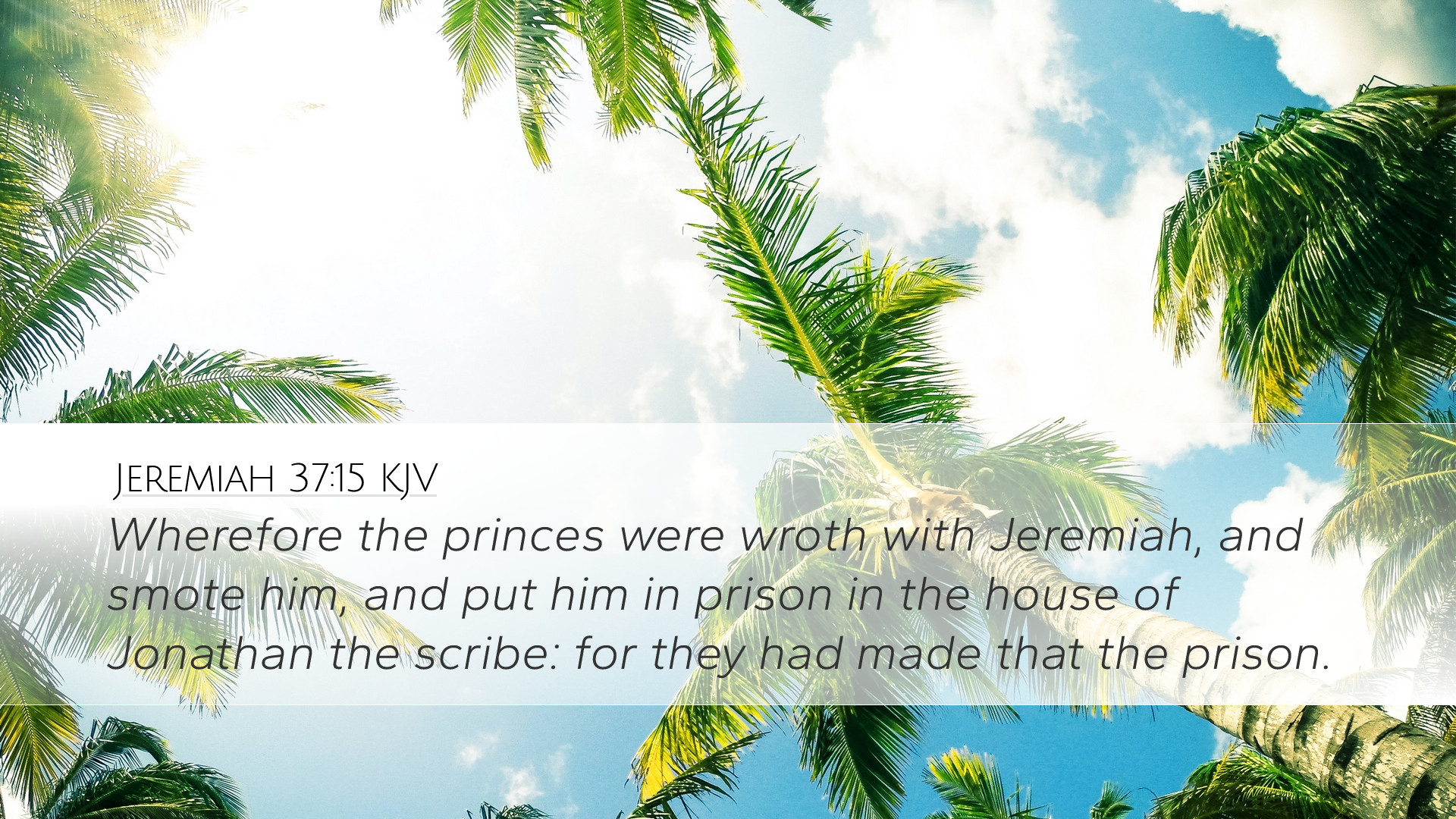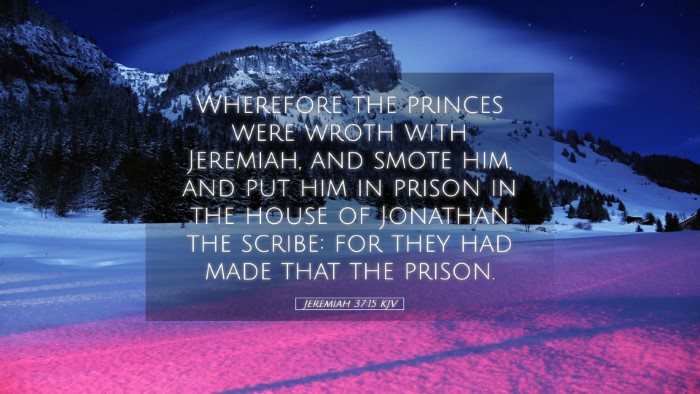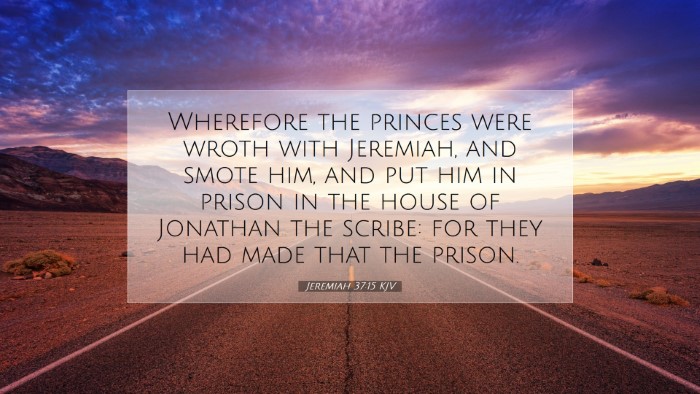Commentary on Jeremiah 37:15
Jeremiah 37:15 reads: "And the princes were angry with Jeremiah, and they smote him, and put him in prison in the house of Jonathan the scribe: for they had made that the prison." This verse captures a significant moment in the life of the prophet Jeremiah during a time of great political unrest and spiritual turmoil.
Contextual Overview
Jeremiah's prophetic ministry extended over several decades, chronicling the events leading up to the Babylonian captivity. This passage occurs in a period when Jerusalem was under siege by the Babylonians, and the leaders of Judah were divided in their responses to the impending doom. Jeremiah, known for his bold proclamations of faithfulness to God, often faced opposition from political leaders. In this context, the anger expressed by the princes demonstrates the tension between divine prophecy and political self-interest.
Insights from Commentators
Matthew Henry's Commentary
According to Matthew Henry, this passage highlights the peril Jeremiah faced due to his faithful preaching. He points out that the princes' anger was rooted in their fear and disbelief, resorting to violence against the prophet instead of heeding his warnings. Henry emphasizes the contrast between the fear of God and the fear of man; the princes placed their trust in their own political maneuvers rather than in God's promises.
Albert Barnes' Notes
Albert Barnes adds that the imprisonment of Jeremiah is indicative of the rejection of God's word by the ruling class. He notes the irony that, while they sought to silence Jeremiah, they were ultimately leading their nation toward destruction. Barnes emphasizes that Jeremiah was merely the messenger of God’s dire warnings, and the leaders' violent response ultimately illustrates their moral and spiritual bankruptcy. Barnes also notes that the princes attempted to protect themselves from the truth, demonstrating how human pride can lead to self-destruction.
Adam Clarke's Commentary
Adam Clarke provides a deeper analysis of the sociopolitical implications of Jeremiah’s imprisonment. He observes that Jonathan's house not only served as a prison but also symbolized the entrapment of the nation in their own sin. Clarke suggests that this incident reflects a broader trend in history where prophets are marginalized for speaking inconvenient truths. Clarke also highlights the cruelty of the leaders, who, instead of engaging with the prophet’s message, resorted to violence, a behavior recurrent throughout history in the face of prophetic voices.
Theological Implications
This verse provides numerous theological insights relevant to pastors, theologians, and scholars:
- The Cost of Prophecy: Jeremiah's imprisonment symbolizes the cost borne by those who are called to proclaim God’s messages, particularly when those messages run counter to popular sentiment.
- The Nature of Leadership: The response of the princes demonstrates a common leadership failure: valuing political expediency over moral courage. In contemporary settings, leaders must discern how to respond to God's truth.
- The Call to Endurance: Jeremiah's steadfastness amidst opposition serves as a model for believers facing adversity for their faith.
- Divine Sovereignty: The events emphasize that, despite human rebellion, God's plans and purposes cannot be thwarted, signaling that His dominion extends even through opposition.
Application for Believers
The challenges faced by Jeremiah encourage contemporary believers to stand firm in their convictions, even when it leads to conflict. Believers today are reminded to take heed of the societal pressures against prophetic voices within faith communities. Pastors and church leaders must cultivate spaces where truth is valued over popularity, ensuring that the prophetic voice continues to be heard.
Conclusion
Jeremiah 37:15 remains a powerful reminder of the trials faced by those who speak God's truth in a world often resistant to such proclamations. By examining the insights from notable commentaries, we gain a richer understanding of the dynamics at play, not only in Jeremiah's time but also in our present context. The call to courage, understanding, and faithfulness resonates through the ages, compelling modern readers to consider their response to divine truth in difficult times.


